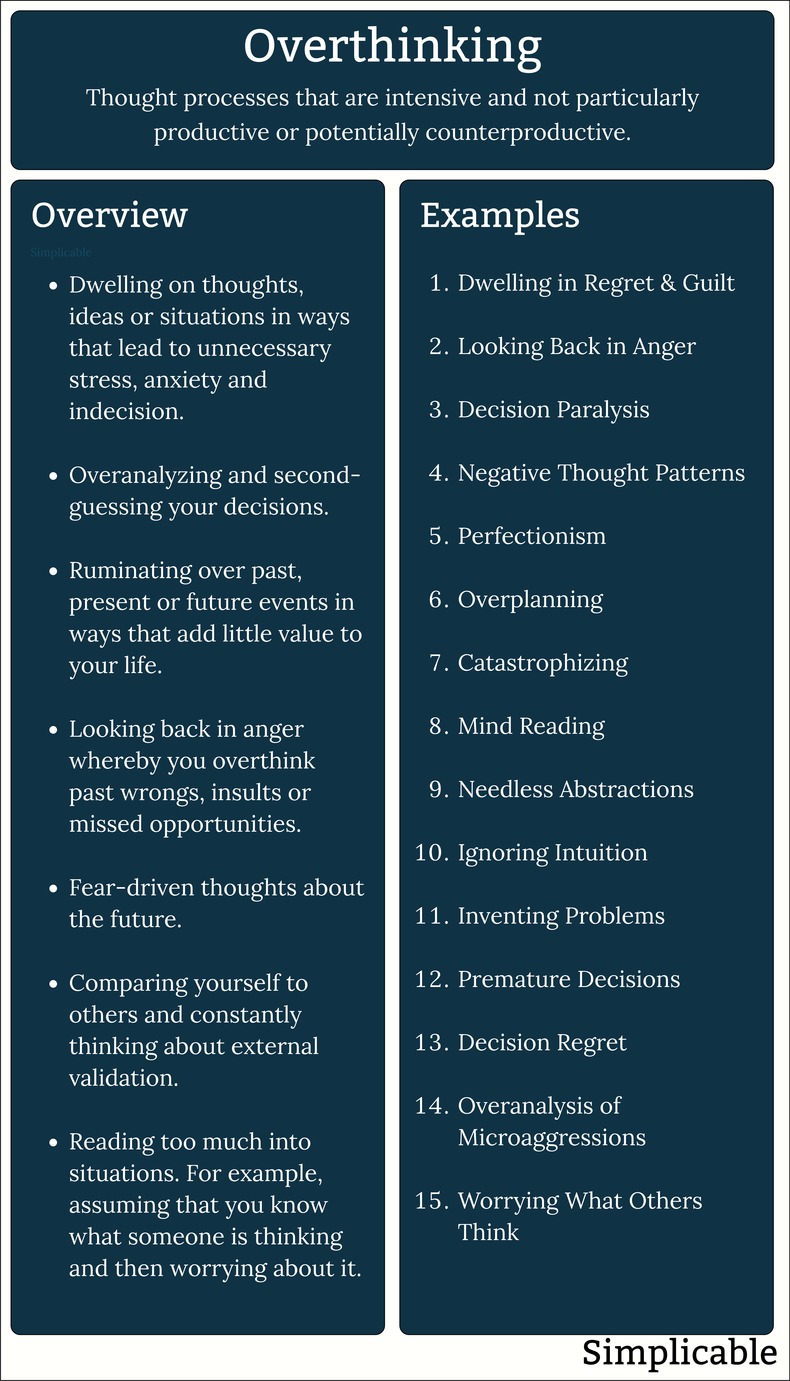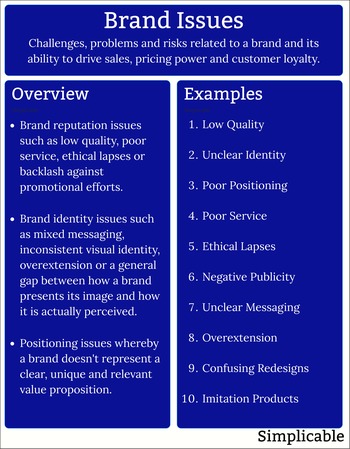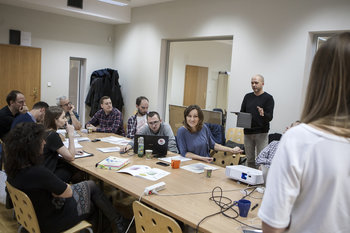
Counterfactual Thinking
Thinking about how the past could have been different. For example, staircase wit whereby you think about what you should have said at a particular moment in time.Abstractions
Going too far with abstractions that are detached from actionable realities.Complexity
Considering too many factors in a decision without filtering and weighing importance.Avoidance
Using the decision making process as an excuse to avoid something you don't want to do.Negativity
Catastrophizing about the past or future. For example, dwelling in past problems, insults, wrongs, regrets and guilt until they become bigger instead of fading away as they should.Cold Logic
Using logic for a decision that requires emotion.Intuition Neglect
Ignoring something you already know. For example, wondering if someone is a good friend when you know in your heart they aren't.Premature Decisions
Wasting time and resources thinking about a decision that doesn't need to be made yet.Irrelevant Decisions
Making decisions you don't need to make at all. For example, thinking about unlikely future scenarios.Creating Problems
Seeing problems where they don't exist. For example, worrying about the future tax burdens of a business before you even get your first customer.Neglecting Speed
Situations where a fast mediocre decision is worth more than a slow optimized decision. For example, choosing a major in college and seeing how it goes as opposed to taking a year to figure it out.Over-Optimization
Tweaking minor details while missing the big picture. For example, perfecting a document at work that nobody is likely to read when time might be better spent seeking out more valuable work assignments.Ambiguity Aversion
Stalling on a decision due to missing information. For example, spending 9 hours purchasing soap because you're unsure which products contain a particular additive.Lack of Principles
First principles are a basic approach to simplifying thinking. For example, the principle that you not care too much about what others think of you unless those people are important to you in some way. This principle could be applied to simplify a wide range of decisions.Paralysis by Analysis
Analysis is a process of breaking things down to their component parts. This is a basic thought process that can be helpful but also risks making decisions needlessly complex.Big Thinking
Creating gigantic solutions to solve small problems.Fear of Failure
Going too far to avoid a chance of failure.Overview
Overthinking is thinking that is counterproductive in some way. This includes thinking that isn't likely to lead to actions that you can take in your life. Overthinking also includes unnecessary thoughts that are stressful, distracting or detrimental.
Discussion
People are social creatures and tend to overthink about what others are thinking, social status and demanding respect from others.The time you spend on a decision can be included in the cost of options. For example, if you think for 3 hours about which $7 product to buy, you can assign value to those hours to determine the efficiency of your decision.A common theme of overthinking is to think about things that you can't change, particularly the past. Another common theme is to overplan for future events that may never occur.| Summary: Overthinking | ||
Area | Thought ProcessesDecision MakingStrategic ThinkingProblem Solving | |
Definition | Overly complex thought processes that waste time and lead to inaction and poor decisions. | |
Related Concepts | ||





































